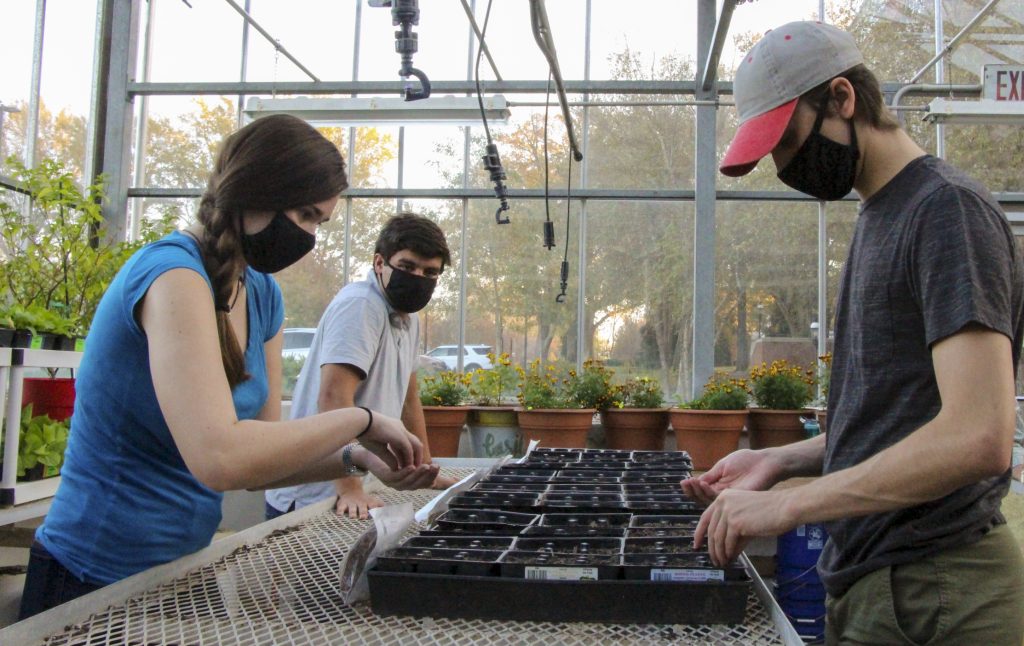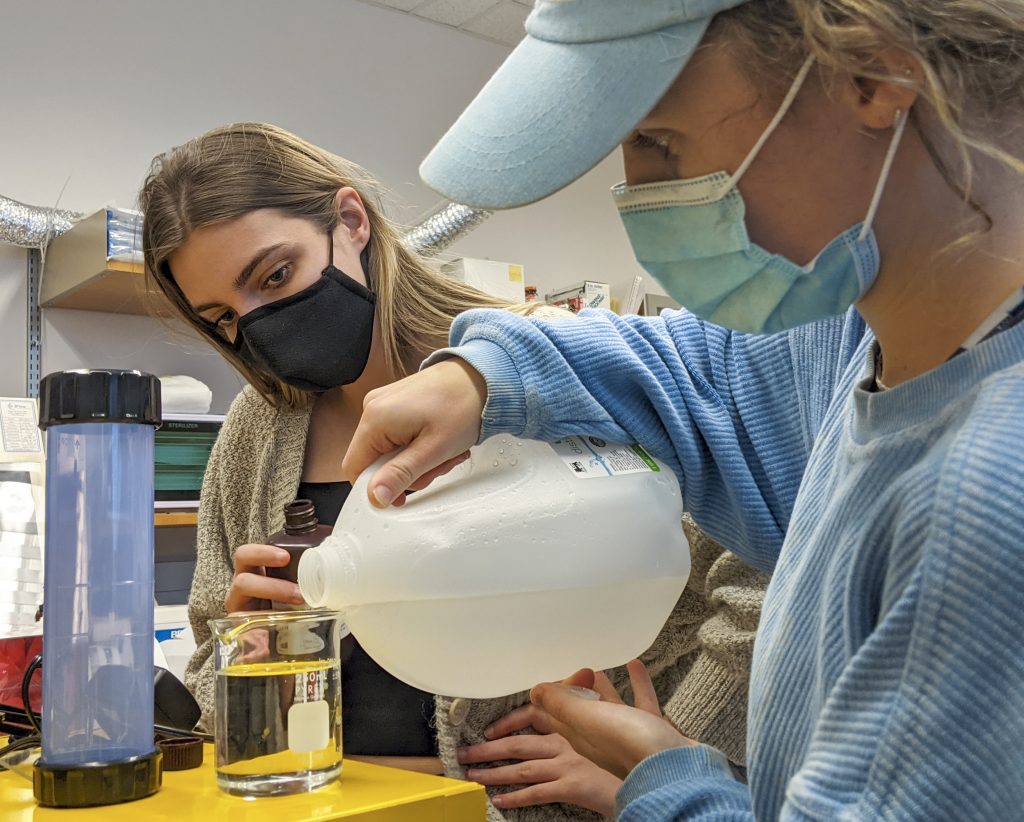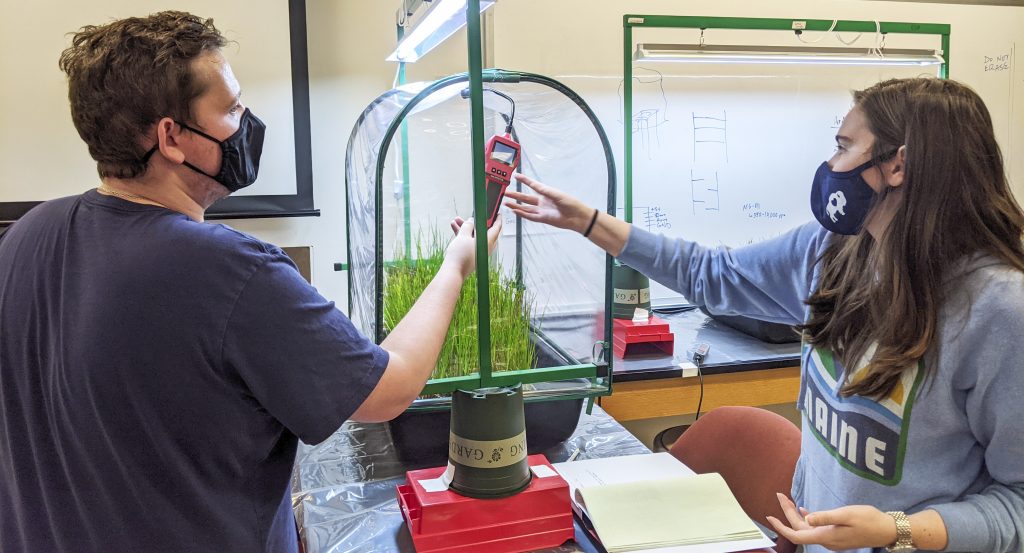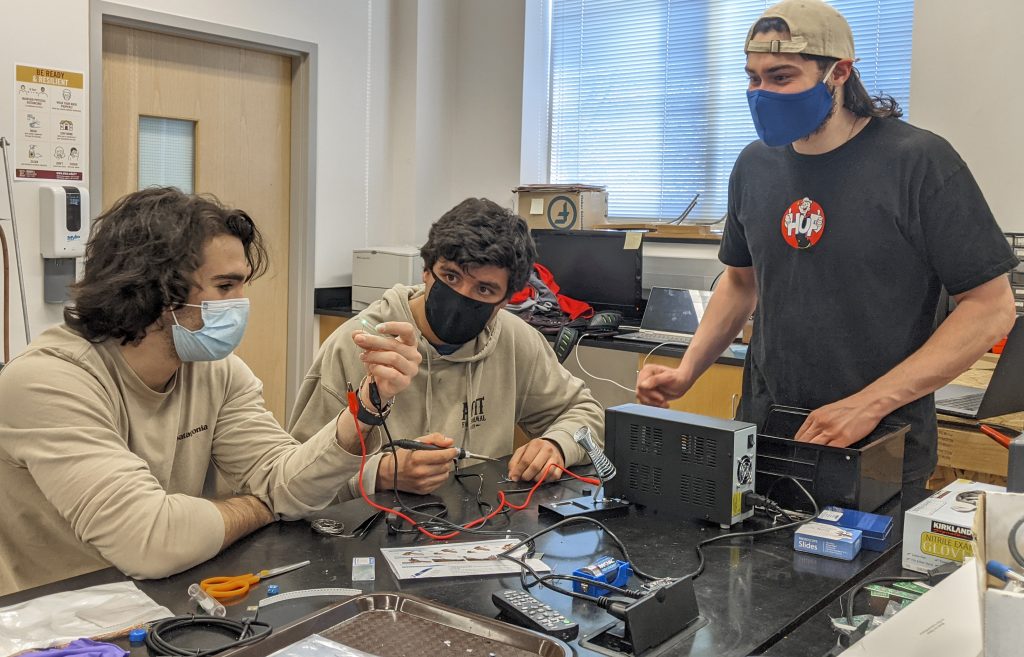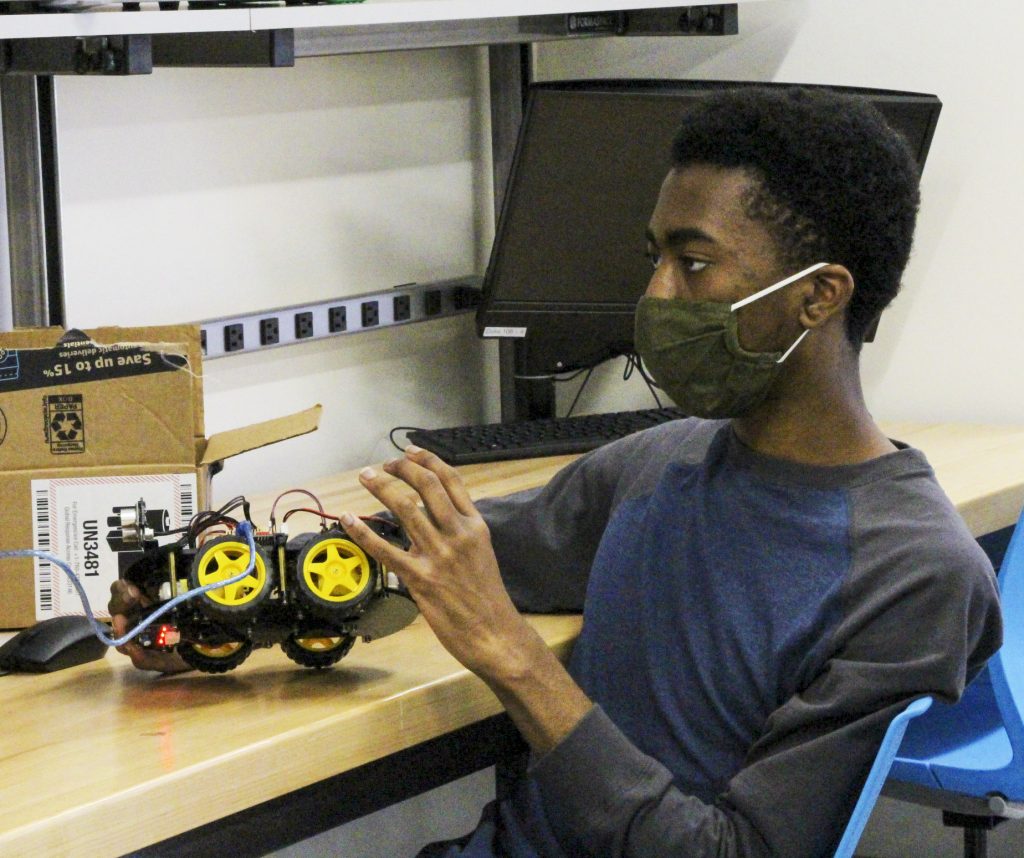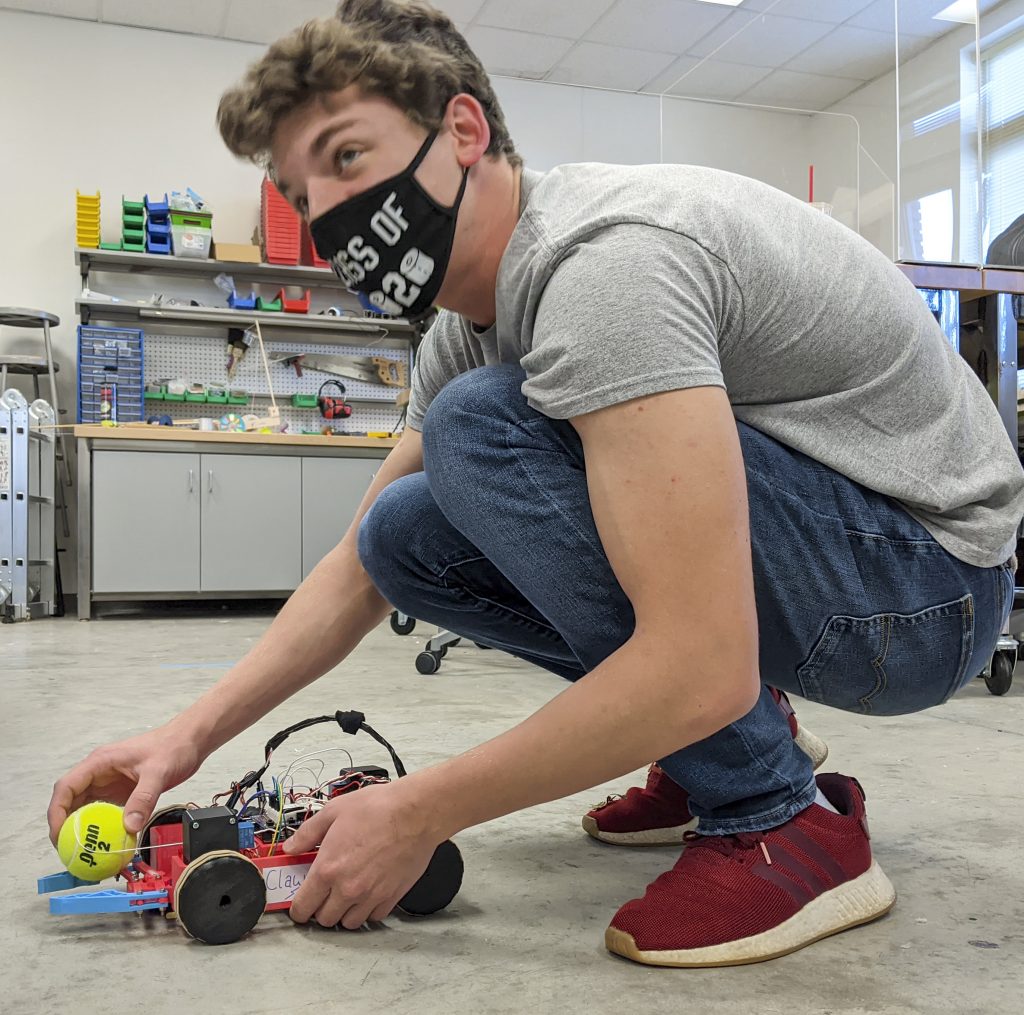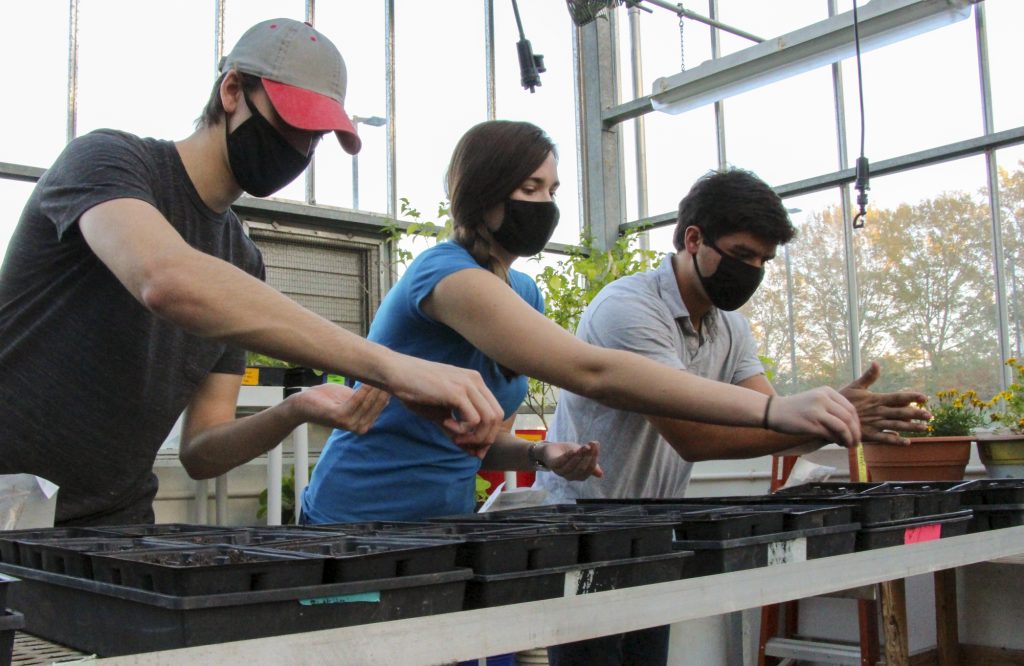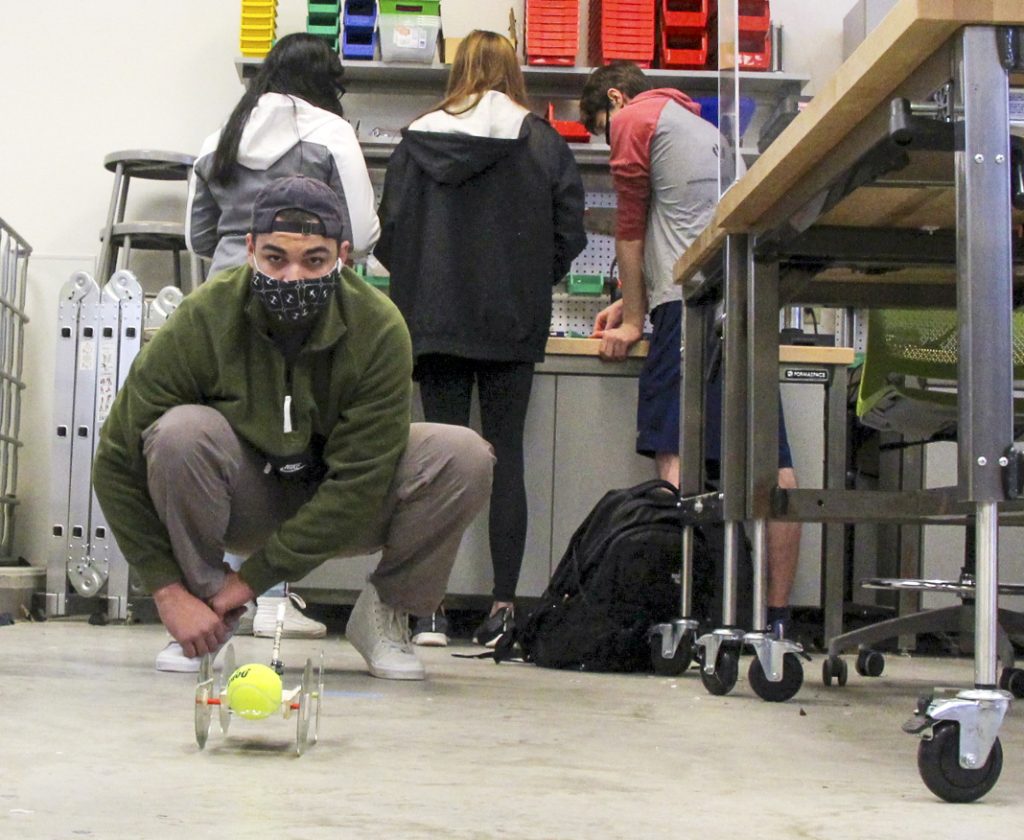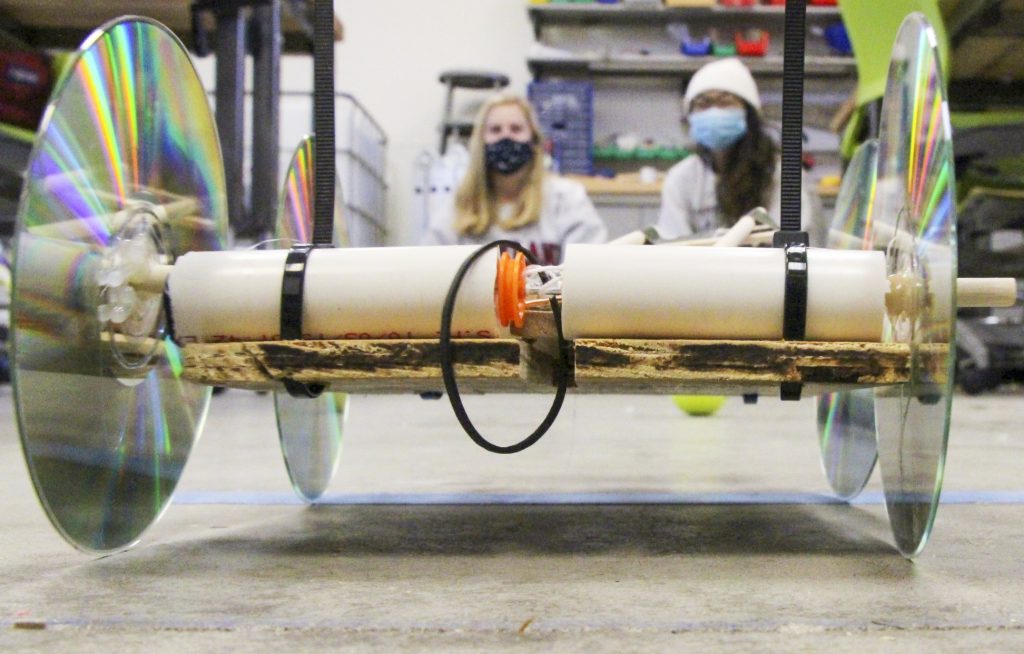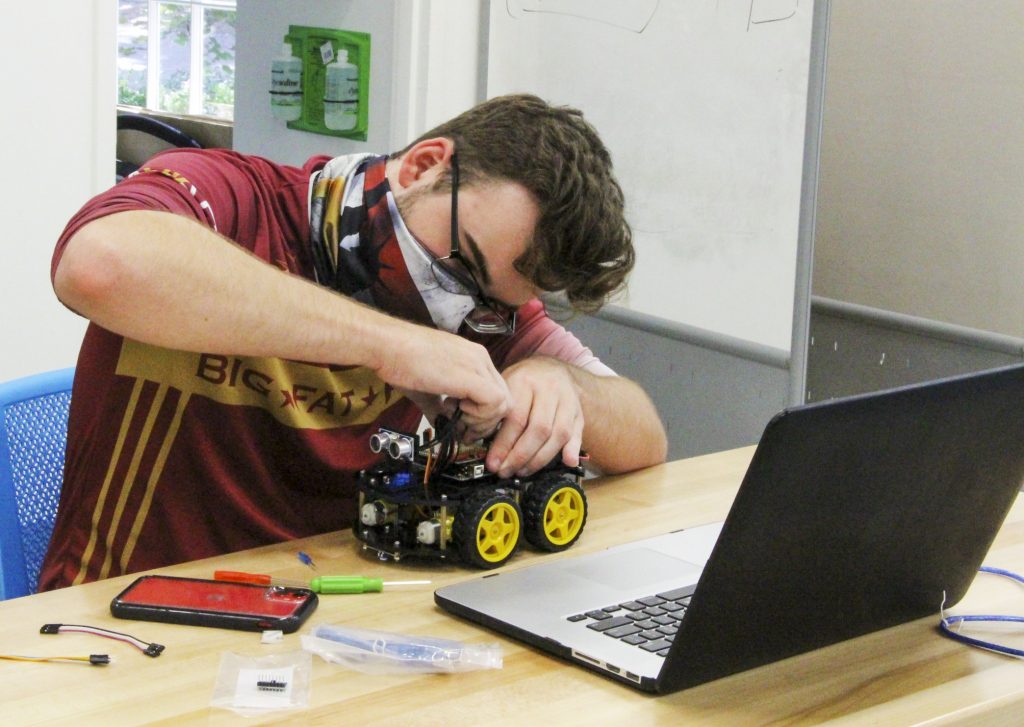The Innovation Quad
A Distinctive Approach
The concept of the Innovation Quad is built upon the idea that any student at Elon can take advantage of this facility at one time or another, depending on individual interests or goals. The labs and workshops within the first two buildings will advance engagement and collaboration among STEM programs. Future IQ buildings will be spaces for bold partnerships across the liberal arts, fusing STEM research with the critical lens of social sciences and the scope of the arts and humanities.
Engagement in Action
The IQ matches Elon’s reputation as a national leader for engaged and experiential learning. In the 2025 U.S. News & World Report’s “Best Colleges” list of national universities, Elon is ranked among the top universities in the nation by U.S. News & World Report, with a No. 1 for excellence in undergraduate teaching and a No. 15 ranking for most innovative national university. Elon also is the leader in the “Programs that Enhance Student Experience” category, as one of only two institutions in the country named to the top 15 in all eight categories linked to student success and positive learning outcomes.
The IQ will strengthen student experiences by:
- Deepening undergraduate research. The quality of faculty mentored undergraduate research experiences continue to change students’ lives, developing passions and preparing them for STEM careers and post-graduate research. The IQ’s advanced labs and workshops will create new opportunities for students to develop academic inquiry, solve large-scale problems and discover the next big idea.
- Expanding experiential learning. With cutting-edge technology, larger spaces to collaborate and experiment, and expanded access to facilities, STEM subjects will come to life.
- Creating a hub of ingenuity. Envisioned are future collaborations around engineering and physics labs involving water research, clean energy and sustainability, biomedical and health analytics, invention and entrepreneurship.
People are going to study our program and see that we can be a leader globally in engineering studies mixed with a liberal arts background. Other schools don’t offer the same kind of program.
Fulfilling a Growing Demand
The demand for jobs in engineering and other STEM-related fields is high and growing. According to the U.S. Bureau of Labor Statistics, overall employment across all engineering fields is expected to grow 7 percent through 2026. The U.S. Department of Commerce estimates that STEM jobs will grow by 9 percent from now to 2024. With its nationally recognized brand of hands-on learning, Elon is perfectly positioned to develop graduates to fill this need. Beyond dynamic job opportunities, the success of the IQ can also be gauged by enrollment, the number of new majors and programs created, growth in undergraduate research both in quality and quantity, internships and corporate partnerships, which will be a significant element of Phase Two.
Elon STEM studies already serve a growing number of students. In 1997, a year before the Dalton L. McMichael Science Center opened, Elon awarded 49 degrees in STEM programs. In 2017, Elon awarded 226 STEM-related degrees. Today, Elon offers 20 majors in STEM programs. The addition of a Bachelor of Science degree in engineering in 2018 to the existing dual-degree engineering program puts us on a growing trajectory. Once fully accredited, anticipated in 2021, the engineering B.S. program is projected to enroll 60 to 100 students per year.
